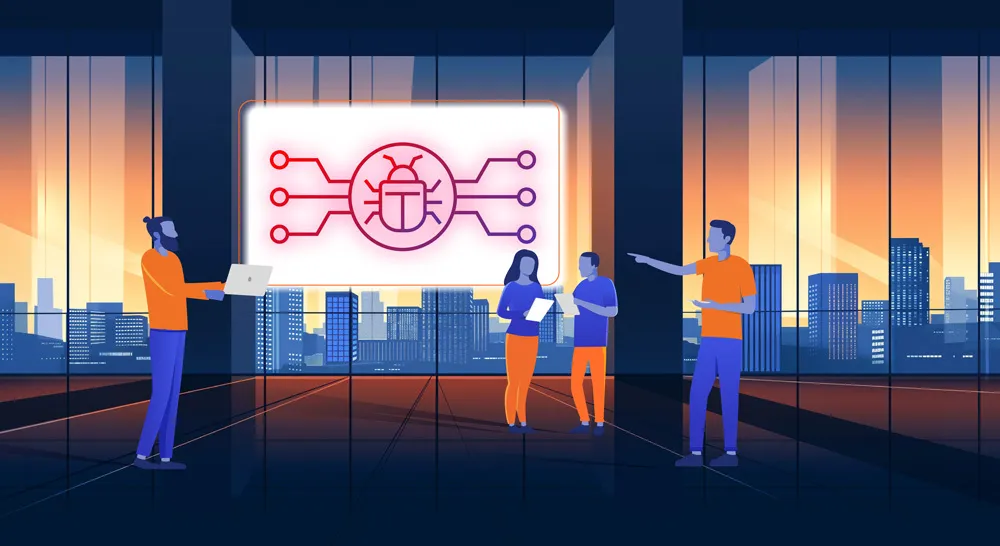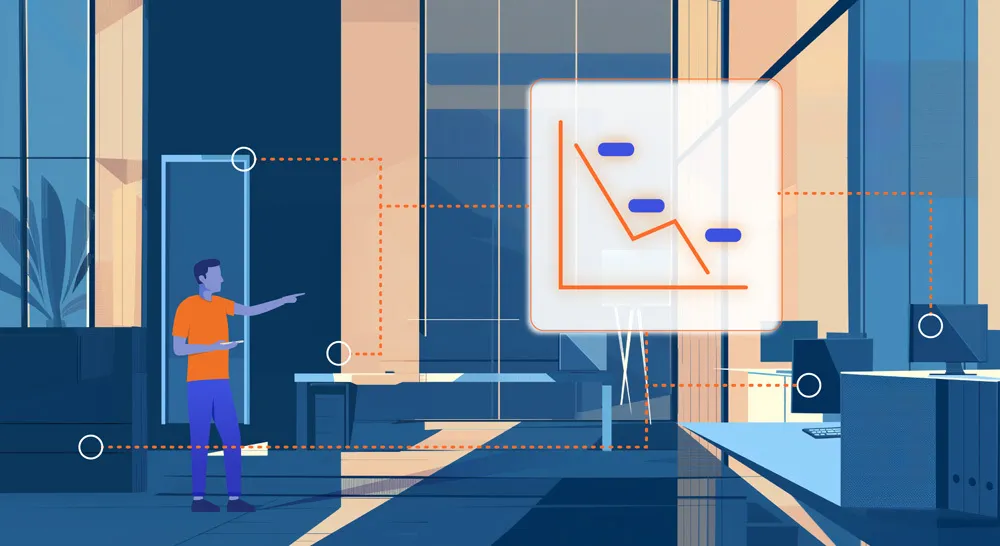
Proactive cybersecurity measures are essential in preventing ransomware attacks and ensuring the resilience of your business operations. By anticipating potential threats and implementing comprehensive security strategies, you can reduce the likelihood of an attack and mitigate its impact. Here are several proactive measures your organization can take to bolster its defenses against ransomware:
Implementing a Zero Trust Architecture
One of the most effective ways to enhance your security posture is by adopting a Zero Trust architecture. This approach assumes that threats can originate both outside and inside the network, and thus, no entity is trusted by default.
- Verify Explicitly: Continuously verify the identity and security posture of every user and device trying to access resources. Use multi-factor authentication (MFA) and context-aware access controls.
- Limit Access: Apply the principle of least privilege, ensuring that users and devices have only the access necessary to perform their tasks. Regularly review and adjust permissions to minimize potential attack surfaces.
- Segment Networks: Divide your network into smaller, isolated segments to contain potential breaches. Implement micro-segmentation to restrict lateral movement within the network, making it harder for ransomware to spread.
Advanced Threat Detection and Response
Deploying advanced threat detection and response solutions can help you identify and mitigate ransomware threats before they cause significant damage.
- Endpoint Detection and Response (EDR): EDR solutions provide continuous monitoring and analysis of endpoint activities to detect suspicious behavior and respond to threats in real-time.
- Security Information and Event Management (SIEM): SIEM systems collect and analyze log data from across your network to identify patterns indicative of a ransomware attack. Automated alerts and responses help mitigate threats swiftly.
- Artificial Intelligence and Machine Learning: Leverage AI and machine learning to enhance threat detection capabilities. These technologies can identify anomalies and patterns that traditional methods might miss, enabling faster and more accurate threat responses.
Regular Security Training and Awareness Programs
Human error is a significant factor in many ransomware attacks. Regular training and awareness programs can help your employees recognize and avoid potential threats.
- Phishing Simulations: Conduct regular phishing simulations to test employees’ ability to recognize and report phishing attempts. Provide feedback and additional training based on the results.
- Security Awareness Training: Offer comprehensive training on cybersecurity best practices, including how to identify suspicious emails, links, and attachments, and the importance of reporting potential threats immediately.
- Regular Updates and Refreshers: Keep security training current with the latest threat intelligence and attack vectors. Regularly update training materials and conduct refresher courses to reinforce key concepts.
Strengthening Email Security
Email remains a primary vector for ransomware attacks. Strengthening your email security can significantly reduce the risk of infection.
- Email Filtering Solutions: Implement advanced email filtering solutions to block phishing emails, malicious attachments, and links before they reach your employees’ inboxes.
- Spam Filters: Use robust spam filters to reduce the volume of unwanted and potentially harmful emails.
- Email Authentication: Implement email authentication protocols such as SPF, DKIM, and DMARC to verify the legitimacy of incoming emails and reduce the risk of spoofing and phishing attacks.
Robust Patch Management
Regularly updating and patching software and systems is crucial to preventing ransomware attacks that exploit known vulnerabilities.
- Automated Patch Management: Use automated patch management solutions to ensure that all systems and applications are kept up-to-date with the latest security patches.
- Vulnerability Management: Conduct regular vulnerability assessments to identify and remediate security weaknesses in your infrastructure.
- Patch Prioritization: Prioritize patches based on the criticality of the vulnerabilities they address and the potential impact on your organization.
Securing Remote Work Environments
The rise of remote work has introduced new security challenges. Ensuring that remote work environments are secure is essential to preventing ransomware attacks.
- Virtual Private Networks (VPNs): Require the use of VPNs for remote access to corporate resources. Ensure that VPN solutions are robust and regularly updated.
- Secure Access Service Edge (SASE): Consider adopting SASE solutions that combine network security functions with WAN capabilities to provide secure and efficient access to remote workers.
- Endpoint Security: Implement endpoint security solutions on all devices used for remote work, ensuring that they are protected against malware and other threats.
Incident Response Planning
Having a well-defined incident response plan can help you quickly and effectively respond to ransomware attacks, minimizing their impact.
- Develop an Incident Response Plan: Create a detailed incident response plan that outlines the steps to be taken in the event of a ransomware attack. Include procedures for detection, containment, eradication, and recovery.
- Regular Drills and Simulations: Conduct regular drills and simulations to test the effectiveness of your incident response plan. Use the results to identify areas for improvement and update the plan accordingly.
- Establish a Response Team: Designate a dedicated incident response team with clear roles and responsibilities. Ensure that team members are trained and equipped to handle ransomware incidents.
Engaging with Cybersecurity Experts
Partnering with cybersecurity experts can provide your organization with the specialized knowledge and tools needed to prevent and respond to ransomware attacks.
- Cybersecurity Consultants: Engage cybersecurity consultants to assess your current security posture, identify vulnerabilities, and recommend improvements.
- Managed Security Services Providers (MSSPs): Consider working with MSSPs to enhance your security capabilities. MSSPs can provide continuous monitoring, threat detection, and incident response services.
- Incident Response Services: In the event of a ransomware attack, engage incident response services from trusted providers like CYPFER. These experts can help you quickly contain the attack, recover your data, and strengthen your defenses against future incidents.
Proactive measures are essential to protect your business from the ever-evolving threat of ransomware. By implementing a Zero Trust architecture, deploying advanced threat detection solutions, conducting regular employee training, and strengthening your email and remote work security, you can significantly reduce the risk of ransomware attacks. Additionally, having a robust incident response plan and engaging with cybersecurity experts can ensure that you are prepared to respond effectively if an attack occurs. By staying vigilant and proactive, you can safeguard your organization’s data and maintain business continuity in the face of cyber threats.
Secure Your Future with CYPFER
Ransomware attacks are a constant threat in today’s digital landscape. Ensure your business is protected by partnering with CYPFER. Our team of cybersecurity experts provides tailored solutions to prevent, detect, and respond to ransomware attacks effectively.
Get started with CYPFER now and secure your business’s future. Visit www.cypfer.com for more information or call [insert phone number] to speak with a cybersecurity specialist. Don’t leave your data and operations to chance—let CYPFER provide the protection and peace of mind you need.
Your Complete Cyber Security Partner:
Every Step, Every Threat.
At CYPFER, we don’t just protect your business—we become part of it.
As an extension of your team, our sole focus is on cyber security, ensuring your peace of mind. From incident response and ransomware recovery to digital forensics and cyber risk, we integrate seamlessly with your operations. We’re with you 24×7, ready to tackle threats head-on and prevent future ones.
Choose CYPFER, and experience unmatched dedication and expertise. Trust us to keep your business secure and resilient at every turn.

Get Cyber Certainty™ Today
We’re here to keep the heartbeat of your business running, safe from the threat of cyber attacks. Wherever and whatever your circumstances.
Contact CYPFER





